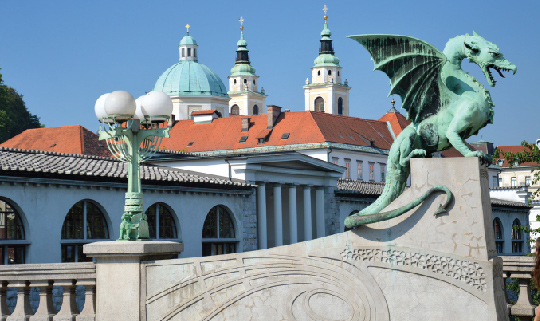Slovenia
Europe (Schengen)

About
Slovenia’s world-class universities are quietly reshaping European education. It offers international students an unbeatable mix of academic prestige, affordability, and quality of life. Located between Italy, Austria, and Croatia, this nation provides research facilities with tuition fees up to 60% lower than Western Europe.
For students asking why study in Slovenia, the answer lies in its unique advantages. The cost of education in Slovenia ranges from just €2,000 to €5,000 annually at top-ranked public universities like Ljubljana and Maribor. English-taught programs across fields to study in Slovenia, including engineering, medicine, and environmental science, attract global talent, with many institutions providing admission without IELTS for qualified applicants. Slovenia’s study visa policies are flexible. The age limit for study visas in Slovenia accommodates young undergraduates and career-changing postgrads.

What the Slovenia offers
Globally recognized degree
Cost effective education
Employment opportunities
Europe’s safest place
A gateway to EU
- •
Globally recognized degree: Slovenia’s Bologna-system qualifications are recognized across Europe and North America. BMW and Airbus recruit the University of Maribor’s engineering graduates, while Ljubljana’s business school partners with Harvard for exchange programs.
- •
Budget-friendly education: At €1,500-4,000/year, Slovenian public universities charge less than what dorms charge at US schools. The government even subsidizes student meals. Three-course lunches cost just €3 at campus cafeterias.
- •
Classrooms without borders: Over 200 programs are taught entirely in English, from AI to sustainable tourism. Universities like Primorska waive IELTS for students with previous English education, focusing on skills over test scores.
- •
Earn while you learn: The student visa allows 20-hour work weeks, with tech hubs like Ljubljana offering €10-15/hour IT internships. Many students fully cover living costs through part-time jobs.
- •
Europe’s safest place: With crime rates 8 times lower than France, Slovenia’s university towns feel like open-air libraries. The national student card gives 24/7 access to campus security and emergency services.
- •
Your gateway to the EU: Slovenia’s central location means Milan, Vienna, and Budapest are weekend trips. Graduates get 12 months to find EU employment, with 73% securing jobs before degree completion.
Required documents
Valid passport
Student visa
Academic transcripts and certificates
Proof of language proficiency
Completed application form
Statement of purpose (SOP) or personal statement
Letters of recommendation
Proof of financial means
Intake sessions
Slovenian universities offer two main intakes. The Winter Semester usually starts in October, and applications are due by August. The second intake is the Summer Semester, which usually starts in March, and the applications are due by January. Some programs have only one annual intake, so early checking is advised.
Intake 1
Intake 2
| Student Visa Type | Purpose | Cost | Allowed stay duration |
|---|---|---|---|
| Temporary Resident Permit (TRP) | Long-term studies (over 1 year) | €120 (plus €28 permit fee) | 1-2 years renewable |
| Schengen C Visa | Short courses/ summer school (under 90 days) | €80 | Up to 90 days within a 180-day period |
| National (D Visa) | For full-time degree studies | €120 | 3 -12 months |
For most part you will require:
- •
Valid passport
- •
Proof of sufficient funds
- •
Proof of return travel
- •
Health insurance
- •
English proficiency test results
- •
Academic transcripts and certificates
- •
Health examination reports
Job opportunities in Slovenia

Still need help? Chat with us

